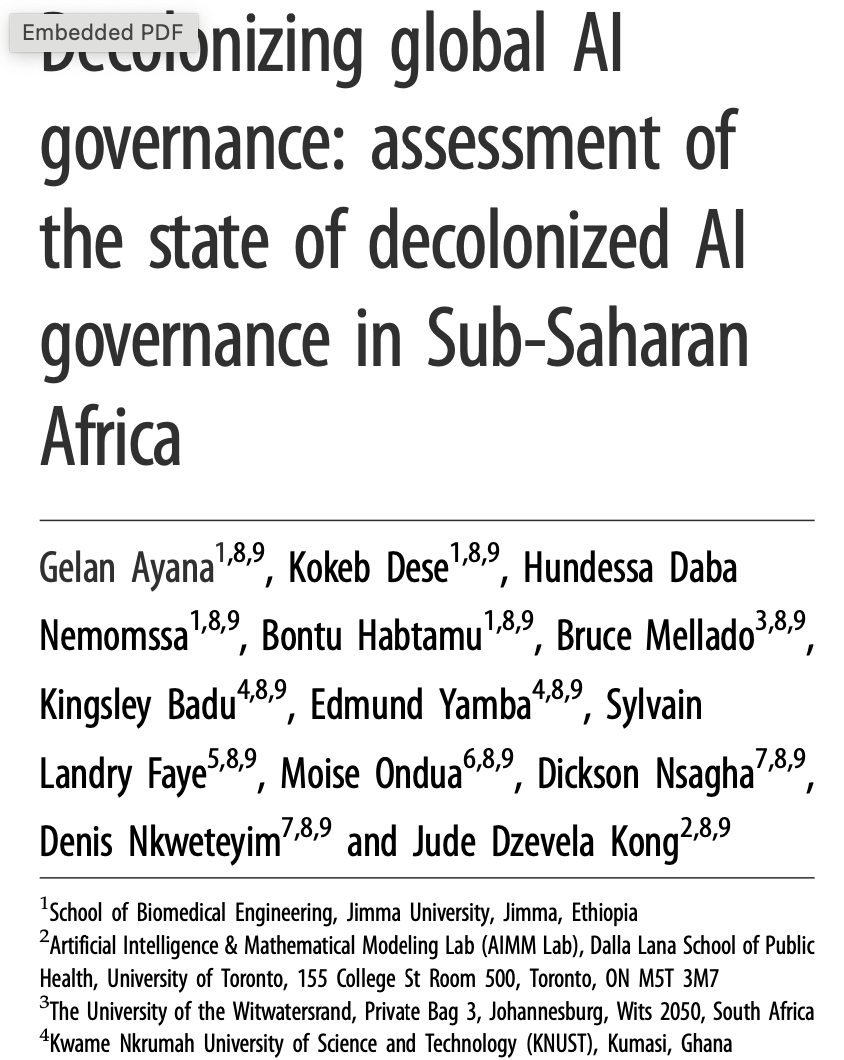
A scale to measure the decolonisation of artificial intelligence (AI) governance and other uses
The scale below appears in a research article by, and can be cited as:
Ayana, G., Dese, K., Daba Nemomssa, H., Habtamu, B., Mellado, B., Badu, K., Yamba, E., Faye, S. L., Ondua, M., Nsagha, D., Nkweteyim, D., & Kong, J. D. (2024). Decolonizing global AI governance: assessment of the state of decolonized AI governance in Sub-Saharan Africa. Royal Society Open Science, 11(8), 231994–16.
The scale used 5 rankings to determine the level of decolonisation of AI governance in selected African countries. The rankings are:
- Decolonization-Resistant: Accepts AI governance colonization and does not do anything.
- Decolonization-Blind: Ignore AI decolonization governance and do not do anything.
- Decolonization-Aware: Acknowledge AI governance decolonization but do not work toward decolonization.
- Decolonization-Responsive: Acknowledge and consider decolonization’s specific needs.
- Decolonization-Transformative: Address the causes of decolonization and work to transform AI governance decolonization.
This scale can be applied in many other settings of research, education and practice.
Use the form below to subscibe to Owia Bulletin.
Discover more from Africa Social Work & Development Network | Mtandao waKazi zaJamii naMaendeleo waAfrika
Subscribe to get the latest posts sent to your email.



